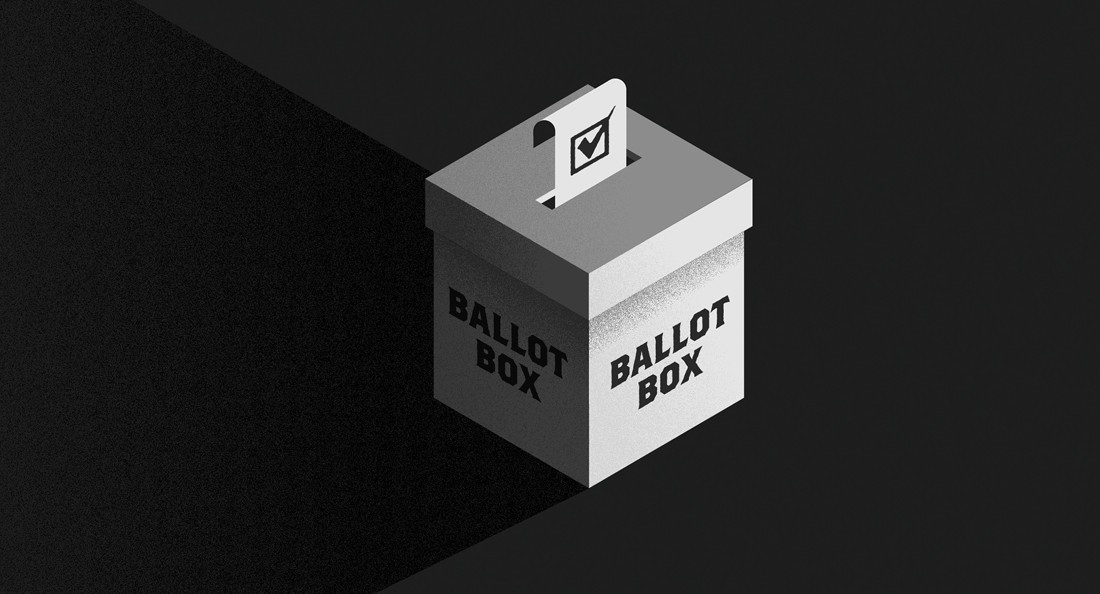What this city needs
A closer look at mayoral campaign promises
Winnipeg’s municipal election on Oct. 24 is being ushered in with a huge roster of mayoral and councillor candidates, many with dense and complex platforms or with no clear summary of their positions at all. This can be a lot for voters to take in, especially with many new faces in the race.
The large slate of mayoral candidates shows an appetite for participation in the city, Dawn Sands, executive director for the North End Community Renewal Corporation, says.
“It’s great to see so many people who are taking such an interest in taking leadership roles,” she says.
But this excitement needs to be followed by a fair assessment of what is actually possible.
Aaron Moore, an associate professor of political science specializing in city politics at the University of Winnipeg, says “most of the people who vote don’t know a lot of the promises (being made).”
Moore says evaluating election promises with an understanding of municipal government limitations is key.
“It’s important that we hold elected officials to their promised policies to an extent, but you also have to bear in mind that the mayor has only a finite amount of authority, and the City only has so much resources,” Moore says.
This lack of engagement can lead to candidates making unrealistic promises and fail to push voters in new directions, according to Lynne Fernandez.
Fernandez, who is the project co-ordinator with the Errol Black Chair in Labour Issues for the Canadian Center for Policy Alternatives (CCPA), says the candidates have been “a bit lackluster, because we’re not hearing any particularly new ideas that for me would indicate that we’re gonna start going in the right direction in this city, which to me would be a more progressive direction.”
A low-key incumbent
Most of Brian Bowman’s platform has been focused on continuation and expansion of policies that began during his mayoral term, and the new things he has added tend to be relatively minor. One recent new promise that gained attention was his proposal to transfer the $4 million earmarked for refurbishing bus garages to install more heated bus shelters.

While Sands says “heated bus shelters are an important part of our infrastructure,” particularly in the downtown core, she “would be interested to see how they’re going to ensure that they’re safe” and mentions she knows “there’s been problems with that in the past.”
Given Winnipeg’s Amalgamated Transit Union’s response that heated bus shelters don’t even have an impact below seven degrees, and the new garage is sorely needed, Moore says the promise seems unnecessary but is likely indicative of a larger strategy.
“I think he’s intentionally running a low-key campaign, because I think he knows, he doesn’t want to generate any significant discussion or debate, right?” Moore says. “The reality is once you’re an incumbent, you realize how little resources the City really has, so he’s probably not as comfortable making big announcements.”
An awareness of the limitations of municipal government may lead to less-attractive campaign promises and tends to benefit those already in power. But Fernandez and Moore say many campaign promises from the non-incumbent candidates reveal major misunderstandings of how municipal government works.
Understanding budgets
While many common promises being made this year are within the realm of possibility, such as banning plastic bags, opening Portage and Main or having construction sites operate 24/7, Fernandez and Moore say tax and municipal budgets seem to be particularly poorly understood by candidates and the public.
Moore says this is partly because municipal taxes work very differently from provincial and federal taxes.
Unlike provincial and federal governments, Moore says municipal governments plan their spending before the property tax rate is set, and they do not get all of the money from property taxes, because some of the tax collected is on behalf of the provincial government.
Many people think of municipalities as having a lot of excess to trim, but, in reality, a municipality is a lean operation, and a property tax freeze severely limits the quality of service the City can provide, Moore says.
But Fernandez and Moore say many candidates fail to account for this in their promises.
Jenny Motkaluk, who has been slated as Bowman’s biggest competition, has built an image Moore characterizes as being “tough on crime,” fiscally conservative and appealing to suburban voters. Policing is a major component of her platform, with promises to expand the police mandate, designate a special police task force for preventing meth distribution and put police officers on buses.
But these promises are based on some misconceptions. Moore says, as with many Canadian municipalities, the police force is more independent from the City than most people think, with its own board at the helm. He says this has the benefit of ensuring policing isn’t as heavily influenced by the whims of elected officials, but it also means there’s less oversight.
Fernandez and Moore say the kind of policing Motkaluk is proposing is an expensive promise for a candidate who has already attacked property tax rates. Fernandez says if the police budget increases at the rate it has been recently, it will be using half of the City’s budget by 2030.
“We are spending so much money on policing that we don’t have money to spend on the programs that we need to get to the root causes of crime, which would then reduce crime, so we don’t need as many police,” Fernandez says. “It’s unsustainable.”
Can property taxes freeze?
Don Woodstock has promised an extensive green infrastructure overhaul in Winnipeg, adding a light rail transit system and solar powered street lights, collecting methane from the dump and utilizing wind power from Portage and Main, but he has also paired these promises with a freeze on the property tax.
Moore and Fernandez say since Winnipeg’s infrastructure is in such bad shape as a direct result of the long standing property tax freeze, the idea of overhauling infrastructure with the existing budget is not realistic.

Fernandez notes many other large Canadian municipalities are raising their taxes by 60 to 80 per cent over the next decade, but freezing taxes is still an ongoing discussion in Winnipeg. Even the increase suggested by Bowman is not enough, Fernandez says, “if you really want to deal with infrastructure deficit and start dealing with climate change.”
Productive conversation around environmental policy has been difficult to generate, Fernandez says. When the CCPA helped to host the mayoral candidate forum on the environment, they requested the candidates review an alternative budget the CCPA drafts with community organizations.
While it was intended to generate productive discussion about environmental policy, “that didn’t happen,” Fernandez says. “None of them really talked about any of the issues, and we just did not hear any sort of comprehensive plan to deal with climate change, and there just seemed to be an overall lack of understanding of what we’re facing and what needs to be done to address it.”
Some candidates have proposed additional income methods, though these ideas raise questions. Tim Diack has proposed charging criminals for the policing used to reprimand them, and Umar Hayat has proposed taking back the grant given to the Winnipeg Art Gallery’s Inuit Art Centre to cover other City costs.
Moore and Sands say Diack and Hayat’s revenue ideas also aren’t particularly feasible.
Money-making schemes
In the case of Diack’s proposal, Sands asks “if people don’t have the means to pay, what are we going to end up doing? Are we going to end up with an American-style system, which is terrible, because we just end up jailing people because they can’t pay their bills.”
“We need to stop criminalizing poverty,” Sands says. “I don’t think sending criminals bills is going to do anything to resolve our safety issues.”
“I can understand what (Diack’s) trying to portray, that the taxpayer shouldn’t be paying to deal with these criminals – the criminals should pay for the cost,” Moore says. “But the reality is you’re unlikely ever (to) recover any money from them, if that’s what you’re expecting, unless you’re getting a lot of white collar criminals and using their money to pay for things.”
As for Hayat’s proposal to take back the Inuit Art Centre grant, Sands says she does not think how we allocate money “always has to be an either/or” when it comes to arts funding compared to other projects.
“Arts is very important to the health and well-being of our communities, so to say that we’re going to take (money) from the Inuit Art Centre, I don't think is the best course of action,” she says. “I agree that we have incredibly pressing issues in this community, but I don’t know if that’s where we take the money from.”
Moore says trying to take back money when construction has already started is “a pretty big issue.” He also speculates the grant was likely given in concert with funding from the provincial and federal governments, and while taking the money back may be possible, it would not foster a good relationship between the levels of government.
Government relationships
Not addressing intergovernmental relationships has also been a hallmark of many campaign promises addressing the meth crisis and spike in reports of meth-related crime, according to Moore and Sands.
“I honestly don’t see the City as having the capacity to address this crisis,” Moore says. “We need the provincial and the federal government. They have far more resources, and the problem extends far beyond the boundaries of the City.”

“I think we need all three levels of government at the table, and I think we need a proactive approach on this,” Sands says. “Safe injection sites definitely need to be part of the conversation. We need to have proper resources available to people who are suffering from addictions.”
She emphasizes having organizations like Main Street Project and Homelessness Winnipeg, who operate on the front lines of the meth crisis, in policy-planning conversations.
Some promises, such as Doug Wilson’s to improve education and wages, which are not within the City’s jurisdiction, also indicate misconceptions about municipal boundaries, Moore says.
“The municipality doesn’t have any role in (curriculum development), and I don’t think they want the role, because that would just be another thing they’re responsible for and another thing that would cost them money, so it’s a weird comment,” Moore says. “It’s odd because as the (former) mayor of Morden, he would know this.”
Sands says “if (Wilson) wants to champion living wages within the City, I think that would be quite interesting and appropriate,” but there are limitations on the ability of the City to influence that.
Promises without perspective
This is hardly the only odd promise. Ed Ackerman’s proposal to have a negative toll bridge to pay people to go to visit the North End has received a lot of media attention. Venkat Machiraju has proposed taking fluoride out of the water, and he is not the only candidate to do so.
Moore says there is a “surprisingly huge debate about the issue of fluoride,” however, it tends to be almost entirely divorced from the science around the subject, which has shown that fluoride doesn’t pose a threat to health and prevents tooth decay.
As for Ackerman’s promise, Sands says the intention may be good, but it would be a “logistical nightmare” and is based on misconceptions about the neighbourhood.
“I think it’s a fallacy that people think that the North End has become stagnant. It’s an incredibly vibrant community. We do have lots of small business startups, and we have lots of long-term businesses here,” Sands says. “I think it’s much more of an information and education that we need to be doing to encourage people to come down here and come visit us and our businesses than it is about giving financial incentives.”
Observing the recent trends in Winnipeg’s mayoral hopefuls, Fernandez believes the kind of promises being made are indicative of a “lack of engagement on behalf of voters and lack of understanding of
how policies and budgets work.”
“So (candidates) can get away with making vague promises, and people don’t necessarily understand that what they’re promising isn’t possible, or else it’s a one-off that seems to make sense to them in terms of just that one policy, but they’re not putting it in perspective with a comprehensive sort of plan,” Fernandez says.
Voters interested in engaging with their municipal politics should review candidates’ statements critically, keep an eye on the work of government watchdogs like the CCPA and their response to candidates’ promises, ask candidates questions when given the opportunity and find out who has been endorsed by the organizations and public figures they trust.
This article is not a complete review of each candidate’s platform. It is not an endorsement of any candidate.
For more information on the election, visit winnipeg.ca/clerks/election/election2018/default.stm.
Published in Volume 73, Number 6 of The Uniter (October 18, 2018)







